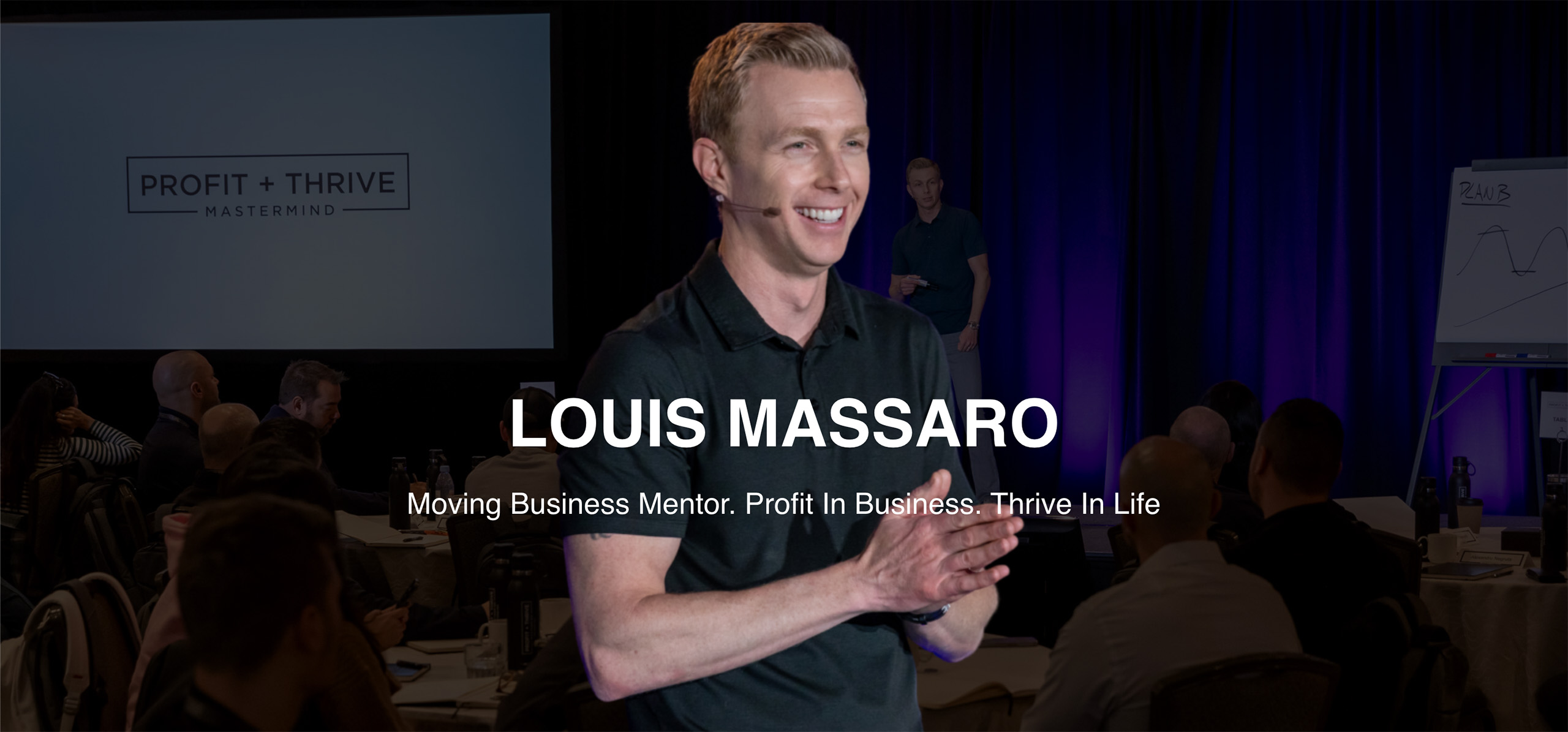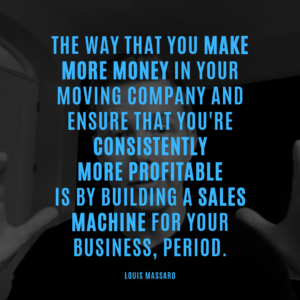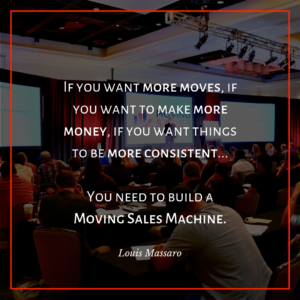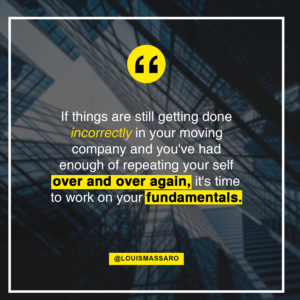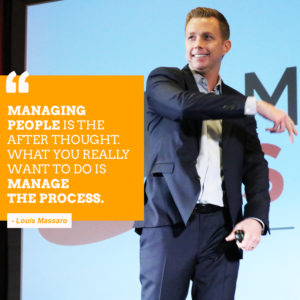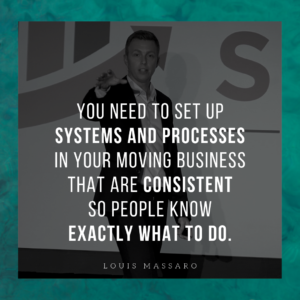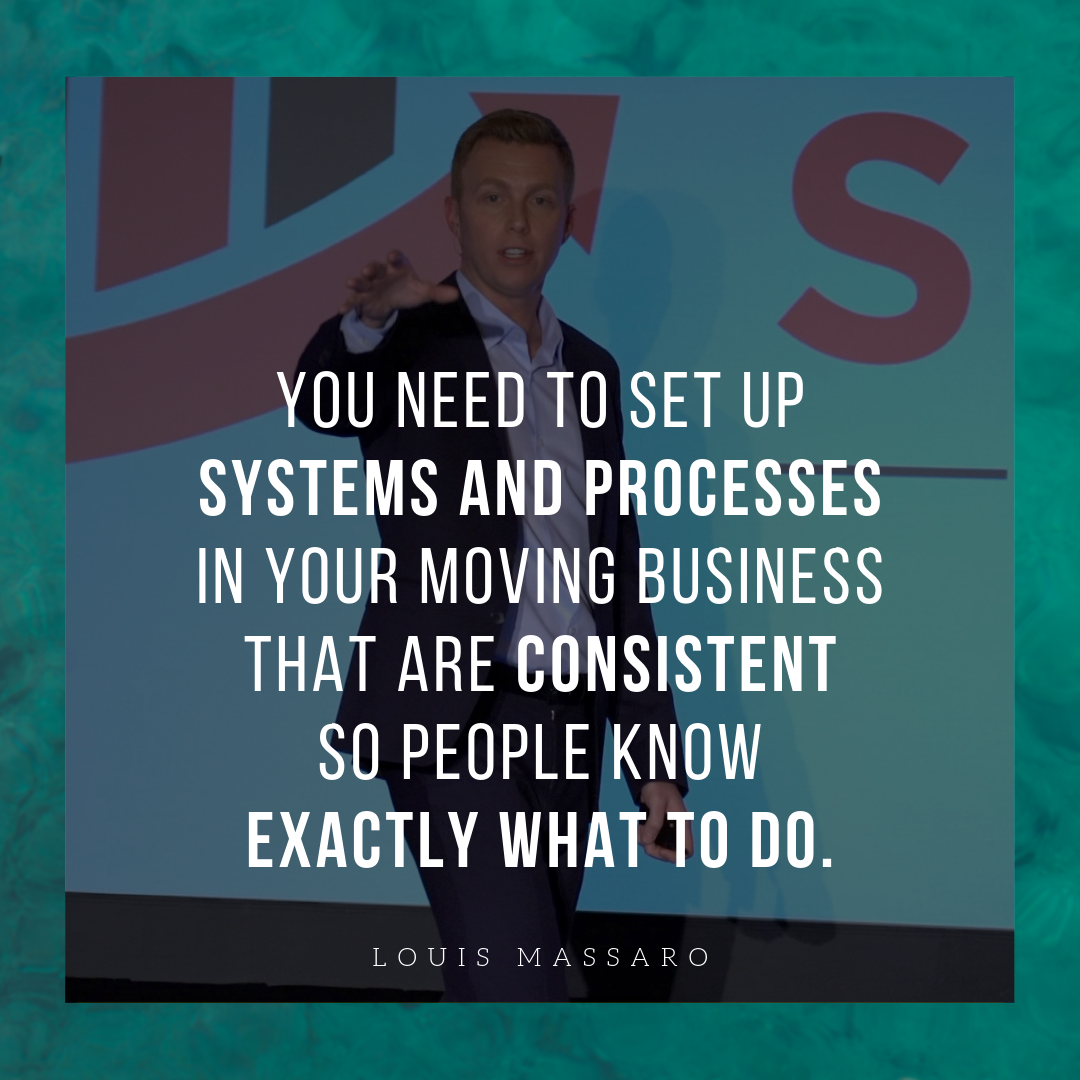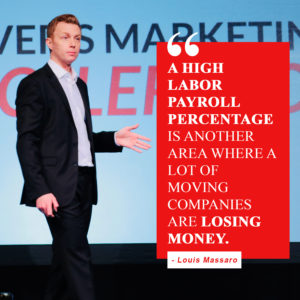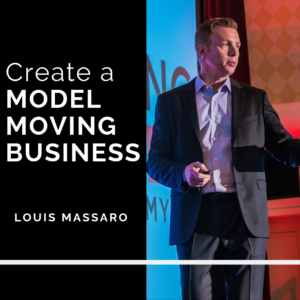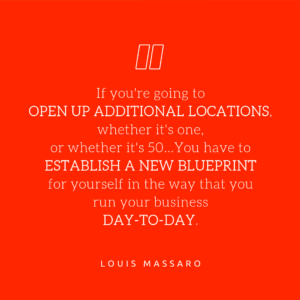[fb_button]
SUMMARY
In this video, Louis Massaro shares how to win big in the moving business in 2020.
- “With internet marketing, you’re able to tweak, you’re able to modify, you’re able to really track everything, and you could make changes quickly. You’re not stuck with something for an entire year. You want to open a new market? You don’t have to wait for the yellow pages to come out. You go open whenever you want to go open and start your marketing.”
- “ I would say, over the course of 11 years, I feel like I came pretty close to perfecting a system for what I call a sales machine for the moving business.”
- “There’s no doubt that there is a shortage of drivers, that there is a challenge in getting movers nowadays. However, the people that have this process down for hiring are winning and they’re winning big.”
- “I’m not saying that the moving business is easy, but it can be easy to make changes… Take the steps, and believe that it’s possible.”
- Watch the video to get full training.
HOT NEWS & DEALS!
- Join the Moving CEO Challenge: Official Louis Massaro Community Facebook Group! A place for moving company owners to connect, share ideas, and inspire one another. Click here to join!
- Latest Instagram!
Check out @LouisMassaro for new announcements, valuable tips, and enlightening videos to take your moving company to the NEXT LEVEL!
RELATED POSTS
My First Moving Company Failed
Building a $20 Million Dollar Moving Company
Take Control Of Your Moving Company
Build A Moving Company Sales Machine
How To Create Processes In Your Moving Company
TRANSCRIPTION
Louis Massaro:
All right, my friend. Welcome to The Moving Mastery Podcast. This is Louis Massaro. I got my main man, Chris, with me today. What’s going on?
Chris DeHerrera:
What’s up?
Louis Massaro:
All right. In these episodes, it is all about helping you take your moving company to that next level, eliminate the stress, overcome any challenges, any obstacles that you’re having, make more money, be able to spend more time with your family, create a model business, and just let this business that you’re in be the vehicle to the life that you want to live. All right?
Chris DeHerrera:
Yes.
Louis Massaro:
That’s what we’re trying to do. In these episodes, what we’re doing is we’re taking questions from my social media feed. If you follow me on any platform, it’s at louismassaro.com. That’s L-O-U-I-S M-A-S-S-A-R-O. If you have any questions, anything you want us to tackle on The Moving Mastery Podcast, just DM me on Instagram. Chris randomly pulls some out. Well, I wouldn’t say randomly. He’s not picking them out of a hat. You’re hand-selecting them because, as the producer of the podcast, essentially, you’re kind of running the show. I’m just here to answer whatever the question.
Chris DeHerrera:
Yeah. I’d like to go through the comments, the questions, the things that come into our support desk and find stuff that I think that, maybe, a lot of people may be wondering about, and stuff that I feel like you can shed some light on and bring some value to these people who are our listeners and stuff.
Louis Massaro:
Yeah. What do we got?
Chris DeHerrera:
Today, I’m going to throw a little bit of a curveball at you. I’d mentioned earlier that it’s a comment this time. It’s not necessarily a question, but I wanted to kind of lay this on you and see how you feel about it. I have a feeling that there may be, maybe not a lot, but some people who share this gentleman’s sentiments. Okay?
Louis Massaro:
Mm-hmm.
Chris DeHerrera:
I don’t know anything about him. I didn’t follow up with this. It’s just a comment that was on one of our social media outlets. I’ll read it to you and then I just want to hear how you feel about it. Okay?
Louis Massaro:
All right.
Chris DeHerrera:
The comment is, “I’ve been in the business for 22 years, and I can tell you everything has gone to shit.”
Louis Massaro:
Oh, bad.
Chris DeHerrera:
He says, “Internet marketing is a joke. Guys don’t want to work. Yelp takes down all my good reviews.”
Louis Massaro:
Oh, boy.
Chris DeHerrera:
“I’m not so sure it’s all as easy as you make it out to be. Get real, buddy.” That’s what he said.
Louis Massaro:
Really?
Chris DeHerrera:
Yeah. Hey, listen, there’s some truth behind it. There’s some heartfelt sentiment behind that, I feel like. I don’t want to make fun of the guy. He’s having, maybe, some hard times.
Louis Massaro:
I’m not making fun of the guy. I’m in shock a little bit. I wasn’t expecting that. All right. Hold on, let me just make sure I got this right. 22 years in the business, business has gone to shit, guys don’t want to work, Yelp reviews come down. What else?
Chris DeHerrera:
He says, “I’m not so sure it’s as easy as you make it out to be. Get real, buddy.”
Louis Massaro:
All right. Give me a minute. This is a good one.
Chris DeHerrera:
It’s a good one, right?
Louis Massaro:
You know what? Here’s the deal. I think that 22 years, I would have been, I started 20 years ago. He’s probably in business since ‘98.
Chris DeHerrera:
That’s 22 years, yeah.
Louis Massaro:
’98 to now, things have definitely changed. There’s no doubt about it. ’98 until now. Let’s just say 2000 until now, because that’s when I got in, about two years after he got in. Things have definitely changed. Gone to shit, no. Guys don’t want to work? It’s a challenge, right?
Chris DeHerrera:
Yeah.
Louis Massaro:
Yelp reviews coming in. Yelp didn’t exist 20 years ago. Not so easy. I don’t know that I’ve ever sat here and said that this is easy at all, right?
Chris DeHerrera:
Yeah.
Louis Massaro:
All the time, this is not a get rich quick business.
Chris DeHerrera:
Definitely not.
Louis Massaro:
It’s a great business that if you do it right, you can make a lot of money. Here’s the deal, because I do see this a lot with veterans, not veterans of our country, but veterans in the business, people that have been in the business for a long time, is that, there’s a couple of different groups. This guy sounds like he just hasn’t made the shift to the new way of doing things. There’s been a few dramatic shifts. Did he say something about everything on the Internet or Internet marketing or something?
Chris DeHerrera:
He said, “Internet marketing is a joke.”
Louis Massaro:
Let’s just kind of look at that, because in order to win today, in this day and age, in order to win in 2020, we know there’s companies crushing it purely, right?
Chris DeHerrera:
Absolutely, yes, we see them every day.
Louis Massaro:
Then, there’s other people that they believe it’s possible, but they still haven’t found the way to do it. Then, there’s people that have seen it just get, I shouldn’t say harder, but it just has changed the way that it’s adjusted from back then, right?
Chris DeHerrera:
Yeah.
Louis Massaro:
I mean, when I started, I put the yellow page ad in, set back my feet up on the desk once I had a desk, once I moved out of the yard, and just phone rang and booked moves.
Chris DeHerrera:
Yes, different game back then.
Louis Massaro:
Different game. Then, 2007, 2008, there’s like the perfect storm.
Chris DeHerrera:
The economy-
Louis Massaro:
Yellow pages stops working. No, I shouldn’t say stops. For the money you’re paying, it’s not worth it anymore.
Chris DeHerrera:
For a while, though, just real quick, how many different yellow page books were you in at one time? Didn’t you have a bunch of them?
Louis Massaro:
Man, every city you were in. I had six offices. Every city you were in, there was the main book from the main phone company. Then, there was, I don’t want to name any of them because I don’t…
Chris DeHerrera:
Who knows? Yeah.
Louis Massaro:
Then, there was another phone provider and there was another yellow page provider. There was at least two to three major providers in each city. Then, they all started coming out with different, like, “We have this area book for the south side of town,” and the east side, they have an area book.
Louis Massaro:
I’m like, “What, don’t they get the main book?” Yeah, but we also want to give them this little book. It was just a way to get more –
Chris DeHerrera:
I remember I had a stack of them.
Louis Massaro:
It was just the way to get more money out of you. You have a total spending of 250,000 a month on yellow pages at the peak. Anyways, when that stopped working… I’m telling this story because I want to illustrate how to adapt. We’re talking about this guy and I know a lot of people feel that way. Maybe, not with such a negative tone.
Chris DeHerrera:
He’s passionate. He’s passionate, yeah.
Louis Massaro:
They feel like, maybe, it was easier back then. It would’ve been very easy for me to argue, “Man, it’s these Internet leads and this and that, and all this stuff online. It’s whatever,” and just complain about it. But the reality was I saw that that’s where things were going and I had to make that shift and I had to make that adjustment.
Louis Massaro:
Instead of fighting it like a lot of people did, I jumped in and I learned what SEO, pay per click, leads, just Internet marketing in general, all of that. How do I make part of me operating my business as I need phone calls, I need leads, I need people that are moving? How do I continue to get those? You’re talking about that timeframe there, 2007, 2008, and then even before that. Leads were coming out. There was stuff going on, but I didn’t really make that adjustment until around that time.
Louis Massaro:
The reality is that a lot of people that didn’t make it through the recession, it wasn’t that the recession did it to them. It was that they didn’t make the adjustment that they needed to make in the way that they handled marketing, and continued to spend money in areas that were no longer working, and, I shouldn’t say refused, but did not adopt and learn the new ways of generating leads for their business.
Louis Massaro:
Here we are 22 years later, and he says the Internet marketing is terrible. I think the Internet marketing is an amazing thing for companies out there. Your flexibility that you have now compared to then, it was great. You put a yellow page on and it was easy, meaning there was less steps involved, but you also had less control. Where now, you’re able to tweak, you’re able to modify, you’re able to really track everything, and you could make changes quickly. You’re not stuck with something for an entire year. You want to open a new market? You don’t have to wait for the yellow pages to come out. You go open whenever you want to go open and start your marketing.
Louis Massaro:
For me, I had to make that shift or I wouldn’t have been able to stay in business, with the marketing. Then, it was I’m getting all these Internet leads and I was, even stuff, pay per click, whatever, anything that wasn’t a phone call. Phone calls are gold, even today. Your phone rings, don’t ever miss that.
Chris DeHerrera:
That’s right.
Louis Massaro:
Don’t ever miss that. We used to print them off on the printer, right? The leads used to come and walk around and hand out pieces of paper back then. That was when the leads first started. There was no CRM with the leads coming directly into them and all that. It was, “Here’s the leads. Hey, call this,” and they would write on there. They did their whole lead follow-up on the sheet of paper that we printed out.
Louis Massaro:
This was now starting to get out of control. And so, I had to shift again and adapt again to the times. I’m like, “What do I need to do to make sure that these leads aren’t getting lost? What do I need to do?” Or I walk up to moving consultant’s desk and I see a stack of these leads with handwritten notes, coffee stains. It just wasn’t organized at all. That’s when I went from studying marketing and learning that to studying call centers, studying sales, how other industries basically handled this type of stuff.
Louis Massaro:
I didn’t sit there and say, “This is terrible. The good old days, you used to be on the phone.” Believe me, there was part of me that was resistant to it, but I knew I had to adapt and I had to change. I’m saying this because it sounds like, for a long, long time, he’s resisted making the adjustments that need to get made.
Louis Massaro:
It was like, first you got to learn Internet marketing is here to stay, period. When somebody wants a service, they go online, they look for it. You’ve got to learn how to be at the end of every path that they choose, meaning customer goes on computer. They Google, “Movers in my city,” let’s just say. Well, everything that shows up, you want to make sure that you’re on the end of every single one of those paths.
Louis Massaro:
If it’s your site directly, you get the lead. If it’s a lead provider, you get the lead. Then, you need to make sure that it’s all profitable. We won’t necessarily get into that too deep right now.
Louis Massaro:
That was the first piece to marketing. Then, the sales piece. How do you start? For me, the leads came out once I had five offices already. I had a good handful of, I think at first, maybe, 15 reps, approximately, in those early days. How do I make sure that the money that I’m spending on the marketing is not going to waste?
Chris DeHerrera:
Well, first of all, let’s back up. For a guy in this situation, let’s just say he’s never bought leads before, he’s never been in that situation.
Louis Massaro:
Well, just so you know, when I say leads I’m talking about any form of mar… It could be from your website. It could be modern-day. It could be from Yelp.
Chris DeHerrera:
I see.
Louis Massaro:
When I say leads, I don’t necessarily only mean moving leads or moving lead.
Chris DeHerrera:
Got you. Even just going from being an old school phonebook only, maybe, they’ll put out a few little flyers or something, to getting a structured lead management process, or anything like that, how does that even happen? You had to make that transition. Was it something that you were able to do quickly, or is it like a process that takes time? How did it go?
Louis Massaro:
I opened my call center. My office, they all handled their sales individually. One office was doing great and the other office wasn’t. I’m like, “I need a centralized call center.” I opened that in 2004 or ’05. I can’t remember exactly. Then, for 11 years, I built my call center to the point we had 60, 70 reps on the phone to book in nationwide. That 11 years was all perfecting that process.
Louis Massaro:
Lead comes in, how and when do we call it? How many times do we call it back? What’s the approach? What forms of communication do we call them on? If this rep’s not there, what do we do with that lead? If a phone call comes in, how do we route that phone call? What are we saying to every one of the customers, based on if it’s a local or long-distance job? If they say they’re not ready to move, what do we say about that? All of it was all to just increase that booking percentage. You got X amount of leads, how do we book more of them? How do we book more of them?
Chris DeHerrera:
Just incrementally one little decimal point at a time.
Louis Massaro:
Yeah. I would say, over the course of 11 years, I feel like I came pretty close to perfecting a system for what I call a sales machine for the moving business. That was the second big shift. You got to get the marketing, shift your way from the old ways to the new way. Then, you’ve got to build a sales machine. Anybody that’s been following me for any amount of time knows that’s the main thing that I go after, is you’ve got to build a sales machine. Otherwise, it doesn’t matter how good your crews are. It doesn’t matter how great your trucks look. It doesn’t matter how many people you have in your office. If you don’t have consistent moves being put on the board and they’re high paying jobs and you’re not just discounting, you’re going to have a really hard time.
Chris DeHerrera:
Sounds like kind of, maybe, that might be what this guy’s going through. He’s just not having consistency.
Louis Massaro:
Well, it sounds like he hasn’t adapted to the marketing. Listen. I don’t want to out this guy.
Chris DeHerrera:
No.
Louis Massaro:
Because it’s hard to learn all this stuff. I remember, in the moving business, everything is great. I’ve got five offices, making money. I’m not thinking about marketing because the phone just rings from the yellow pages. Back then, it’s like if you had the balls to put the money up for the yellow page ad and you had the ability to sell… See, I had the ability to sell from day one. Those were sales tactics. I just didn’t have the sales systems down.
Louis Massaro:
If you had that ability to do it, then, you were good. Now, when that stops working, it’s panic mode. What a lot of people do in panic mode is they retreat. It’s not a test to anybody’s character or hammer or anybody else, but it could be scary. To be in a business where all this time you’ve known things to work a certain way and all of a sudden they’re totally different, I remembered the feeling.
Louis Massaro:
It wasn’t like at first, I’m like, “Yeah, no problem. I’m going to go learn it.” It wasn’t. It took a while. It took a lot of denial of what was happening, of what was going on, and, “Oh, that’s not going to last,” to finally saying, “If I don’t learn this, if I don’t get on top of this now, I’m going to be in a really, really bad spot.”
Louis Massaro:
It’s true. I mean, if you’re not dialed in on your Internet marketing and your marketing in general, you’re going to be in a really bad position. I tell people all the time, “You, as the moving company owner, need to be the best marketer in your business. Don’t hire an agency and expect them to come in. If you need them to do specific things for you, technical, pay per click, SEO type of things, great. You don’t need some big branding agency to come in and brand your business. You just need to learn what it is about the marketing.” Same thing with the sales. Now, in 2020, we’ve got a new obstacle.
Chris DeHerrera:
What’s that?
Louis Massaro:
There was, “Hey, you’ve got to learn internet marketing. You’ve got to get on top of that. Then, you’ve got to create your sales machine.” Both of these still are true today. Before I get into the challenge today in 2020, you still got to have your marketing on point. You still have to have a strong sales process. Now, there’s another piece, which is your ability to hire and train movers quickly.
Chris DeHerrera:
A lot of what he said there was “guys don’t want to work.”
Louis Massaro:
It’s true. Guys don’t want to work. Listen, I’m not sugarcoating anything. The reality is it’s a different generation. They don’t want to go and move furniture for a living. It’s not. It’s different than it was. There’s a lot of other opportunities or, at least, perceived opportunities in this social media world that we’re in, where everybody’s like, “Hey, do this. You can make a bunch of money online.” Guys could go work for Uber, or whatever the case may be.
Louis Massaro:
There’s no doubt that there is a shortage of drivers, that there is a challenge in getting movers. However, the people that have this process down for hiring are winning and they’re winning big. What I mean by that is it’s easy to sit here and say, “It’s so hard to hire movers these days. They don’t want to work. They go and work here. They want more money. It’s just so hard. It’s so hard.” It’s easy to get caught up in that mindset. It’s easy for an owner to listen to his dispatcher that’s in charge of hiring and bringing movers onboard and getting them into the rotation, telling him how hard it is. It just starts to infect everybody.
Louis Massaro:
I’m not saying that there’s not truth to the fact that it’s harder to do. What I’m saying is this is the reality, so, either get good at it or get out of the business.
Chris DeHerrera:
Yeah. You got to adapt.
Louis Massaro:
You got to adapt. The people that are adapting are crushing it. I talked to a lot of people. We talked to a lot of people. We hear a lot from what’s going on. I’ve got a good amount of private clients that I work with directly in their business. The ones that they’ve got their marketing on point, they know their numbers in their marketing, they’re testing, they’re tracking, they’re tweaking, they’ve got their sales machine going, and now they’ve added this piece of hiring movers and not complaining about how hard it is but just doing the additional work that it takes to make it happen, they’re winning.
Chris DeHerrera:
They’re winning.
Louis Massaro:
They’re making a lot of money. They’re expanding, they’re opening additional locations, and they’re not worried about that. If we just take a step back and we say, “What’s this all about?” Forget about 22 years ago. Forget about today. It’s a moving business. What do people want? They want to hire a professional moving company.
Louis Massaro:
As a professional moving company, what do I need to do to get that job and be in front of them and be successful? I’ve got to be able to generate leads and book moves.
Chris DeHerrera:
Step one.
Louis Massaro:
Your sales machine. You’ve got to be able to service those moves by hiring movers and, obviously, having trucks and dispatch and all that. You got your sales going and you’re constantly able to book moves and you’ve got your hiring process going for movers and you’ve got that. There’s details in between, but those are the two main things. Book the move, service the move; book the move, service the move.
Louis Massaro:
Yes, it’s different today. Man, anybody who’s sitting and thinking about this, like, “The moving business is tough in 2020,” or, “It’s different than it was 22 years ago.” What we tend to do as humans is, when we don’t understand something, we start to reject it or we start to fear it or we realize that we need to learn more about it and we go right after it.
Louis Massaro:
I think, for the people that want to just say the moving businesses is, like he says, gone to shit or it’s not so easy, guys don’t want to work, there’s all kinds of reasons that people can complain about what it is, but there’s also strategies that aren’t that hard that will solve all these problems. It’s all perception, right?
Chris DeHerrera:
Right.
Louis Massaro:
You get this guy, he comes into the seminar and we sit him next to someone that we know has a totally different perception and they talk for three days, it’s going to be–
Chris DeHerrera:
Change everything.
Louis Massaro:
It will change everything.
Chris DeHerrera:
Perspective.
Louis Massaro:
I’m not selling anybody a dream. This is hard work. Here’s the difference between just doing the work and then trying to go figure out a way. That’s why I’m doing this. I know it’s challenging. I’m saying like, “Hey, let me help you avoid all these rabbit holes that you could go down looking for solutions and just lay out a plan for you.” On a macro-level, this is what’s needed. You’ve got to book moves, you’ve got to service moves. It’s really that simple.
Chris DeHerrera:
The name of the game.
Louis Massaro:
Then, everything else in between is just details that we lay out in courses and seminars and all that.
Chris DeHerrera:
Yeah. Now, there’s nothing wrong with somebody who has gotten to a certain level in their company and they’re cruising along and they’re comfortable and they’re happy with the way things are going. I think, maybe, a guy like this who’s been in the business for 22 years, at some point, he did have to do some work to get off the ground, I would imagine. Then, maybe, he just got to a certain level where he felt like business is good, maybe, didn’t want much more than what they were doing. Does somebody have to have that go get them attitude? Where is his bitterness coming from? That’s what I want to know.
Louis Massaro:
His bitterness is coming because his business is probably going down. I’m not going to say failing, but it’s going down. I could totally understand this and I know quite a few people like this. It’s a natural tendency, too. You build a business, you get it to a certain place, then, you set up everything, so it’s just like you’ve got your little routine going. Jobs are being booked, guys were servicing the moves, everything’s fine.
Louis Massaro:
He probably had a good amount of years where he thought he was done innovating. He thought he was done trying to make things better. He got to a place, I’m assuming. In my mind, I’m thinking of several people that I know that went through the same thing. They get to a place where they’re like, “I’m good. I’m comfortable. I’ve got a business that runs. It makes the money that I wanted to make. Yeah, sure, I could always make more money.” Then, all of a sudden, enemy fire starts coming in at you. It’s like, “Boom, this stops working.”
Louis Massaro:
Now, there’s these lead review sites online. If you don’t have a good review, then, you’re not going to get the business. Then, when you get a good review, they take down your good review. You got to understand, from being in a nice cushy place of things are going good, it’s like enemy fire coming at you. You’re being attacked.
Chris DeHerrera:
You feel threatened.
Louis Massaro:
You feel threatened. Many years of being comfortable, it’s tough to, say, let me go do this all over again, because when you succeed at that first level of saying, “Hey, I just need to get my business off the ground,” and you get to that level where it’s good and it’s stabilized, and then you kind of sit back a little bit. “I don’t have to work like I used to work.” Then, something comes in and kind of challenges you to have do that again. It’s not something’s coming in and saying, “Hey, I’m challenging you to do this.” It’s saying, “Hey, your businesses failing. There’s these things out there that could be the possible culprits of what’s going on. Go figure out what’s happening.”
Chris DeHerrera:
Uh-huh, and you don’t know.
Louis Massaro:
You don’t know. I mean, I get it. What I did, maybe, I don’t get into detail enough about how challenging it was to make those shifts. Not I was like one day I decided I need to learn marketing and I just went and did that. I went through all the same stuff of like, “Man, I was living really, really, really good before that recession came. Then, I had to really change the way I looked at everything.”
Louis Massaro:
Anybody that’s in that position that’s comfortable, right now things have been booming, I think that you’ve always got to be looking for, first of all, do you know your numbers? Do you see things dropping? You got to be able to identify what it is. I know the feeling. When you’ve got a successful business, success can totally be the enemy.
Chris DeHerrera:
Yeah. It makes you relaxed.
Louis Massaro:
It makes you relaxed. It makes you sit back. You don’t need to go, “I’m successful,” or, “I’m stressful.” It doesn’t need to be one or the other.
Chris DeHerrera:
Either one, yeah.
Louis Massaro:
You just have to be aware. You’ve got to be aware of what’s going on. In a long run of success for somebody doing something the same way, you have two choices. You could sit and complain and go, “This Internet stuff’s going on and the guys don’t want to work.” You got two ways to do it. You could say, “What can I do about it? How can I step up my game and use this as a challenge to become better? How can I do this?” Because you know what? If you’re struggling with it, other people are struggling with it. He probably has something to say about all the competition, too. If you’re struggling with it, other people are struggling with it. That’s the perfect time for you to step up your game and make sure that you will survive whatever comes your way.
Chris DeHerrera:
If someone has been running a company for 22 years like he has and things have been just on autopilot, basically, how would somebody like that go about creating some sort of contingency plan? Maybe, they don’t want to necessarily grow at scale, but they want to be prepared if something happens.
Louis Massaro:
I don’t think that people don’t want to grow and don’t want to scale. I truly believe that they just feel like it’s going to be more work for them. They look at, “I’m at this level, and at this level I’ve got this much stress, I work this many hours. If I want to go to this level, that means the amount of stress and the amount of hours are also going to go up.” That’s very common and, I think, just natural feeling that’s a misconception.
Chris DeHerrera:
Yeah. It makes sense to think about
Louis Massaro:
It makes sense to think about. I think that a lot of times people will, consciously or unconsciously, say, “I’m good here. I don’t want to go any further,” because they’ve reached a certain comfortable level; but, you’ve got to reach a level that’s beyond comfort, so that you can safeguard yourself against whatever happens. Get beyond so you could weather any storm. Get beyond where you currently are.
Louis Massaro:
Listen. If somebody’s totally happy, they’re totally content, they just need to make sure that they’re watching certain KPIs, certain key performance indicators, or seeing what’s going on in their business, they’re identifying any dips right away and still maintaining it, but there’s maintaining and then there’s building. If you’re just maintaining, it becomes very hard to just do the same amount without it dipping.
Chris DeHerrera:
It just naturally wants to start dipping.
Louis Massaro:
It naturally wants to start dipping. If somebody’s comfortable, they’re making the money they want to make, their business is smooth, their business is running, the question I would ask them is, if you weren’t going to have more stress, you didn’t have to work more hours, you could actually have less stress and work less hours, would you want a bigger business? Would you want more money?
Louis Massaro:
The business doesn’t always have to be bigger. I know very big businesses that aren’t making a lot of money. I know mid-sized businesses that are making a ton of money. Would you want to make more money? Who’s going to say “no?” It’s that people are like, “I don’t want to sell my soul to make more money.” Of course not. It’s just a different strategy and it’s just a different approach to doing it. We have to look at happiness, too. People are like, “Money doesn’t buy happiness,” but, one of the main indicators in psychology of happiness is if you’re activating your full potential. It’s directly tied to your happiness.
Chris DeHerrera:
Really?
Louis Massaro:
Really. If you know you could be doing more and you’re not and you feel a little uneasy, you feel like something’s missing, it’s because you’ve got more in you. It doesn’t mean you have more hours in you. It doesn’t mean you have more stress in you. It just means you could use what’s between your ears, what’s in your head, to become more resourceful, to get more creative, and to start saying like, “Is there a better way I could be doing this?” What could I be doing? Maybe, raise your level of ambition to, if you’re like, “Hey, I just want to increase by 10%,” well, how do we increase by 50%? Or, 100%?
Chris DeHerrera:
Mm-hmm. You had mentioned earlier, what did you say, $500,000 mindset versus a $5 million mindset?
Louis Massaro:
Well, a strategy.
Chris DeHerrera:
Strategy, okay.
Louis Massaro:
Yeah. I mean, it’s like if you’re in a position where you’re trying to get your business to, let’s say, $500,000 a year, you’re going to have one strategy that’s going to help you get there. It’s going to be very short term. It’s going to be very based on next month and next month, and that type of thing. If you lay out, “How do we get the five million?” Even just asking that question and thinking through the answers, you’re going to have a whole different strategy.
Louis Massaro:
What a lot of people do is they go, “No, no, no. That’s too much work. That’s going to take too long.” They don’t even think about how long it’s going to take. They just think about how much work it’s going to take and how much pressure it’s going to feel on them. Short term. They’re like, “I need to get $500,000 this year.” Why couldn’t you get to five million in 5 years or 10 years or 20 years?
Louis Massaro:
What I’m saying is your strategy changes. It doesn’t mean you’re going to go from zero to five million in a year, but what it means is you’ll pass through that milestone of hitting $500,000, of course; but, if your strategy is laid out to go to five million, it’s going to be–
Chris DeHerrera:
You’ll keep going.
Louis Massaro:
It’s a game plan to get there. Otherwise, you get stuck at where your current strategy was and just spin in circles.
Chris DeHerrera:
Yeah. I think, probably a lot of people don’t even have a strategy. They just kind of get to a certain point and then they say, “I guess this is where I’m going to stay. This is where I’m at.”
Louis Massaro:
Yeah. I get that. I totally get that, because the initial start of the business is so challenging that when you get to a place of stabilization where you’re stabilized, it’s like, “Ah.” It’s time to take a breath.
Chris DeHerrera:
That’s okay.
Louis Massaro:
Yeah, it’s time to take a step back. It’s time to take a breath. Once you stabilize, then you’ve got to come in and you’ve got to optimize. Take your breath. Take your break. Take your time. Reduce your hours that you work. Start to pick up those hobbies that you didn’t have before. Schedule in that time with the family. Great, but use your time now to optimize the business.
Louis Massaro:
Then, once you optimize the business, now, you sit back and you look at it like an amazing piece of work that you created. You design this amazing thing that’s running. It’s optimized. Now, you really feel proud of what you’ve done.
Chris DeHerrera:
Yeah. It’s okay to hang out there for a little while.
Louis Massaro:
Then, you hang out there for a minute. Then, from there, from an optimized place, you decide, do I want to scale? The first rule of scale is, do I need to scale?
Chris DeHerrera:
What does that mean?
Louis Massaro:
That means, do you need to open more locations? Do you need to get a new division? Do you need to get into commercial and long distance and this and that in order to reach your personal income goals?
Chris DeHerrera:
It’s not always…
Louis Massaro:
It’s not always the case. I see a lot of people that will open an office too soon or open a new division too soon. I shouldn’t even say too soon in a time regard. It’s more like there’s these other fundamentals that aren’t in place first that need to be locked down in an attempt to make more money. I’ll sit with several people like this and say, “Well, how much money do you want to make?” They say that number and I’ll challenge them to compare that to what it’s going to take. Go make a list of everything that you want in your life. What’s it really going to take to live that life?
Louis Massaro:
Go sit with a financial planner. Do it yourself. Whatever you need to do, but everything you want, what’s it going to cost you to do that? That means that this is what you need to make in order to live, invest, save, pay your taxes, do whatever. A lot of times, they could do that with their one office and keep things simple.
Chris DeHerrera:
It can be a recipe for disaster to try to expand like that without being ready for it or having the fundamentals in place.
Louis Massaro:
Yeah. What happens is a lot of people will actually jump before they even get stabilized and go right to scale without stabilizing or optimizing.
Chris DeHerrera:
Dangerous.
Louis Massaro:
That’s dangerous. That’s how you take the whole ship down with you.
Chris DeHerrera:
Getting back to the marketing, let’s just, for the sake of argument, call him an old school person, somebody who came from those yellow pages days. What’s a way for them to kind of start learning about the new marketing SEO and pay per click and buying leads and stuff like that?
Louis Massaro:
Honestly, go to louismassaro.com. Go to sales and marketing. Watch all those videos. Go back in the podcast. Listen to anything that has the word, “marketing,” in it. That’s the place to start for free. We’ve got courses. We’ve got seminars. We’ve got coaching. We’ve got all kinds of programs to help with that.
Louis Massaro:
It would be crazy for me to tell somebody to go on the journey I went on when I went and I sought out the information, brought it back. Not like I went and brought some information, I’m just a messenger, and I went, “Hey, guys. I went and studied a bunch of marketing books and let me tell you what I found.” No. I went and learned everything I could. Books, coaches, mentors, consultants, courses, all of it. Still to this day, constantly. Then, came and applied it to the moving business on a high level.
Louis Massaro:
For me, it might sound self-serving to go, “Go listen, go watch my videos,” but I believe that, for anybody in moving, that is the best information out there that they could get, other than, of course, seminars, coaching, courses, and all that with us. It’s so tried and true and proven and tested. That’s where I would start because a lot of books out there, the authors are writing them in… A lot of great ones, but a lot of books are they’re writing these books in a way where it’s just way over people’s heads and it’s totally unnecessary and it’s like to make the author just sound smart. I don’t know what the deal is, but it’s just a lot of fluff.
Louis Massaro:
I tell people all the time, “You’re better off going to the bookstore and going to the personal development section and read that stuff, getting your mind right, getting psychology books.”
Chris DeHerrera:
Rather than business.
Louis Massaro:
Well, especially, if you’re in the moving business. We’ve laid it all out. I’m not saying it’s not good to learn. You could read books and you could do all that, but you ask like, “Where is the best place?” I mean, that’s the best place.
Chris DeHerrera:
Speaking of personal development and stuff, how important is that in being able to evolve and grow and change with a business?
Louis Massaro:
When you look at this gentleman here, it’s a guy?
Chris DeHerrera:
Yeah.
Louis Massaro:
This is what would be considered in psychology a fixed mindset versus a growth mindset, which is like, this is happening and everything just stays fixed. Whereas, in a growth mindset, you’re looking for the way, you’re adapting and you’re growing as an individual.
Louis Massaro:
If you look at he started two years before I started, I don’t know where he’s at, and it’s not about bigger business or anything like that, but the amount of growth that I have experienced from all of the same challenges that he went through, to me, that’s what life is all about. If you’re not using every single one of these challenges that you face in your business to grow as a business person, as an individual, you’re wasting those opportunities and you’ll stay stuck within those walls that are keeping you confined until you decide to grow, so you can either go over those walls and round those walls or bust straight through them. It’s super important.
Chris DeHerrera:
Let’s talk about Yelp. He’s saying Yelp takes down all of the good reviews. I know Yelp is changing their algorithms frequently.
Louis Massaro:
So we think.
Chris DeHerrera:
So we think.
Louis Massaro:
So we think. That’s what we say, but the truth is we really don’t know what they’re doing. They’re going to do whatever they want to do. It’s their business.
Chris DeHerrera:
What’s a way to ensure that you can always have a good representation of your company on Yelp?
Louis Massaro:
You’ve got to just do the best job you can and you’ve got to be proactive with asking for the reviews. It is what it is. Did you get five-star reviews? Did you get a ton of five-star reviews and they filter all of them?
Chris DeHerrera:
No.
Louis Massaro:
What are you going to do about it? What are you going to do with that? Probably, somebody in this guy’s category, if we were to categorize him, would totally disengage from Yelp and stop responding to reviews and stop dealing with it because they get so pissed off that all their good reviews are down that they just totally say, “I’m not dealing with Yelp. Yelp wants me to advertise. I’m not dealing with that. I’m not advertising with them.”
Chris DeHerrera:
That’s not a good idea.
Louis Massaro:
You have to accept the landscape that is out there. You’ve got to accept every single bit of it. I don’t care if you like it. I don’t care if you don’t like it. I don’t care if you like Yelp. I don’t care if you don’t like Yelp. They’re here and they’re a part of this business right now in 2020. Play the game. That’s it. Do everything you can to get that five-star rating, and that’s what you have to do. I say that, but at the same time, I know the feeling of getting that five-star review and it gets filtered. I know the feeling of getting that one-star review and you can’t even figure out who it is. You’re like, “This isn’t even our customer.” I’ve looked everywhere like, “This doesn’t even make sense. This isn’t even our customer.” I know that.
Louis Massaro:
I don’t know. My thought process is always, “Can I do something about it? If so, let me take action and do something about it. If not, let me just accept it and move on.”
Chris DeHerrera:
Stay stuck in it.
Louis Massaro:
I’m not going to tear myself apart and have a sick stomach because Yelp took my five-star review down. It stings at first. The idea is, with that type of stuff, talking about the mental game for a moving CEO, you get upset about something. Your mover doesn’t show up, one of your sales reps does something wrong, puts the wrong notes in the system, it screws up a job, Yelp takes down your five-star review. You’ll get mad. You’ll feel a burn in your stomach. To whatever level you’re used to feeling that, you’ve got to just start, little by little, closing the gap between the time that the thing happens that you’re pissed off about and the time where you shake it off and let it go.
Chris DeHerrera:
There’s no benefit to just staying.
Louis Massaro:
If you need to feel it for five minutes and get pissed, whatever you got to do, punch the walls, whatever it is, close the gap from the place where you’re pissed to the place where you’re all good again, because that’s where your company needs you to be on point. Not to be upset about little trivial stuff. Again, $500,000 strategy gets mad over a Yelp review? $5 million strategy says that’s part of the game, move up on. You know what I’m saying?
Chris DeHerrera:
Yeah. Either deal with it or accept it.
Louis Massaro:
That’s it.
Chris DeHerrera:
It is what it is.
Louis Massaro:
What can we do to make sure that doesn’t happen again? That’s it. Something happens, what can we do to make sure that doesn’t happen again?
Chris DeHerrera:
You had addressed the last part of his comment, in which he said, “I’m not so sure it’s as easy as you make it out to me. Get real, buddy.” I agree with that. I don’t think you make it seem as easy as he maybe thinks you do, but, I would say, maybe, you could give just a couple of helpful tips or pointers for somebody who may be experiencing some of these same feelings that this guy’s going through.
Louis Massaro:
Yeah. Well, I think we kind of sprinkled a bunch of them all throughout this episode. Go back and listen to it again. I would say, to win in 2020 in the moving business, you’ve got to have your marketing on point. You’ve got to know your numbers, your marketing, ROI, report. You’ve got to have that. Smart Moving users, it’s in there. It’s built-in for you. Full disclosure. I’m a co-founder of Smart Moving.
Louis Massaro:
You’ve got to know those numbers so that you could test certain things, track them based on what the ROI is, and then tweak them. Your marketing, you got to get on top of that. Then, your sales process has to be more than, “Hey, we call people, we leave them a message, and we move on,” and that’s it. You’ve got to really dial that in. Go to louismassaro.com. Watch all the videos on sales. Click on the sales category. Watch all those videos just to get you started.
Louis Massaro:
Then, you’ve got to make sure you’ve got your mover hiring process down. Yes, it’s hard. Double, triple, quadruple down on the effort that you make to hire movers. Instead of looking at it as just something we do once in a while when we need people and we put an ad and it used to be kind of easy, look at it as something where this needs to be a built-in process that the minute we need somebody, we play on the process, the recruitment effort goes out and we run them through it, and that’s it.
Louis Massaro:
It’s got to be taken more seriously. It can’t be something where your dispatcher says, “Hey, we’re short on guys,” and you’re like, “We’ll run an ad.” You’ve got to step it up. You’ve got to step it up and you got to tackle it, because the companies that are crushing it right now, they’ve got all three of these things lined up solidly. I would say, focus on those three things.
Chris DeHerrera:
Cool. All right. Good. Well, I won’t throw curveballs at you anymore from negative comments, but I thought [crosstalk 00:47:42].
Louis Massaro:
No. I like that. It was good. I think it’s important, Chris, because I know there’s a lot of people that feel that way.
Chris DeHerrera:
That’s what I thought.
Louis Massaro:
There’s nothing wrong with them. It’s just, sometimes, you need someone else to shed light on a different way of looking at it. When you are in a position where you’re a business owner, you own the company, a lot of times, you don’t have people around you that will tell you the tough things that they need to tell you.
Chris DeHerrera:
That’s true.
Louis Massaro:
Because the people that are surrounding you almost every day are your employees. Sometimes, you could get some decent feedback from them and some good feedback from them, from trusted people, but, if you don’t have someone else to share that perspective and say, “Hey, why don’t you look at it like this?” Actually, let’s send him a link to this. Let’s make sure he gets this and listens to this and say, “We made this for you.”
Chris DeHerrera:
Okay, yeah.
Louis Massaro:
I hope that just the change in perspective gets him to look at it, because he can change all this so easily. I say that again. He can change all this so easily. I’m not saying that the business is easy, but he could make the changes. All it is is steps. Do this, do that, do this, do that. Take the steps, but believe that it’s possible.
Louis Massaro:
Anybody that is feeling this way, they don’t believe that it’s possible. They’re like, “The world’s going on and the world’s going to end, tat-tat-tat-tat.” You’ve got to block all that out, ignore that, go for what’s in front of you, because the iron is hot right now and a lot of people are making a lot of money. That’s just the reality of it.
Chris DeHerrera:
That’s true. Well, he was asking for you to get real. I think you just got real.
Louis Massaro:
Yeah, probably more than he was expecting from his comment. Listen, guys. Let me know what you think about these episodes. If you are loving this, if you’re liking this, if you’re hating this, if you’re getting some perspective, some motivation, some tips, some strategies, let me know. Just send me a DM at Louis Massaro on Instagram. Send me a picture of you listening to this. I’d love to get the feedback. I’d love to know that we’re not just sitting here talking to each other for no reason. Leave me a review on Apple Podcasts. Let me know what you think about this specific episode.
Louis Massaro:
If you don’t already have your tickets for our upcoming seminar, Moving CEO Live, make sure you go to movingseminar.com. That’s movingseminar.com. For three days, I am going to lay out detailed step-by-step strategies on how to dominate the next 10 years of the moving business. You need to be there. Go to movingseminar.com. All the details are there. Until we see you next time. Go out there every single day, profit in your business, and thrive in your life. I’ll see you later, my friends.
